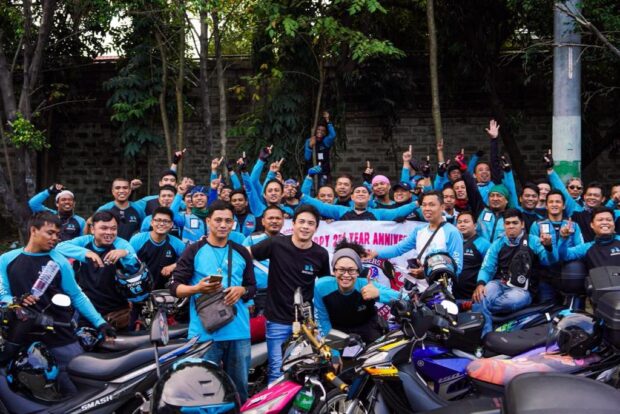
MANILA, Philippines – The country’s top motorcycle taxi-hailing app Angkas, reaffirmed its long-standing commitment to passenger safety and security through its 24/7 emergency accident fund.
During the Senate committee hearing on public services regarding the legalization of motorcycle taxis, Angkas CEO George Royeca said that since they started Angkas in 2017, their accident rate has been at 0.003% or less than 1,000 cases yearly.
This, after Sen. Raffy Tulfo asked MC taxi companies whether their accident rates have increased or decreased during the past couple of years.
Royeca clarified that most of the recorded accidents involving motorcycles did not undergo proper motorcycle training.
“Yun po yung pini-plead namin na case. Pag dumaan po sa training yung driver, yung ginagawa naming motorcycle safety training, nababasbasan po siya ng safety learnings at safety mindset. Gumaganda po yung pagtakbo nya ng motorsiklo,” Royeca said.
The young tech CEO reiterated that Angkas has a P200,000 medical reimbursement in case any passenger and rider figures in an accident and a P500,000 coverage for death and dismemberment.
“Meron po kaming emergency fund that is 24/7 and we have partnerships with 50 hospitals. In fact what we realized, pag motorsiklo po yung naaaksidente, humihingi po sila ng deposit sa mga hospitals. Kaya nag partner po talaga kami with the hospitals kapag motorsiklo o Angkas ang naaksidente para dire-diretso po yung care ng doktor. So we really endeavor to make sure that maayos ang pagalaga sa pasahero at biker namin. No ifs, no buts,” explained Royeca.
Passenger safety is one of the crucial considerations in the passage of the motorcycle taxi bill.
But after more than three years of continuous studies by TWG, Senate Public Services Committee Chair Sen Grace Poe believes it is now time to legalize MC taxis in the country.
“It now appears without a doubt that commuters are overwhelmingly in favor of legalizing motorcycle taxis. The latest TWG survey reports a whopping 96% of the motorcycle taxi passengers surveyed believed that the government should allow motorcycles as a mode of public transportation. Commuters favor MC taxis’ affordability and quicker conveyance time. In our clogged streets of urban centers where MC taxis were allowed to operate, riders, even habals, lobby for a legal regime as it stands to give them a viable source of income and livelihood,” Poe said.
Poe also reiterated that the TWG’s MC taxi pilot study is the policy’s strength as its implementation gave government regulators enough time to come up with solutions or interventions to improve its regulations once legalized.
“The established vulnerability of motorcycle as a mode of transportation calls for the government to step in. We need to legalize it to reflect the reality on the ground. But we also need the highest safety standard to make this a true mobility alternative,” added Poe.
The Senate committee hearing on MC taxis is the first part of the vision to legalize and create a regulatory and safety framework for the transport network vehicle system.
Poe believes it is now time for Congress to use the data points from the ground to craft a policy that is responsive to the needs of the commuting public and all the stakeholders of the ever-growing MC taxi industry.